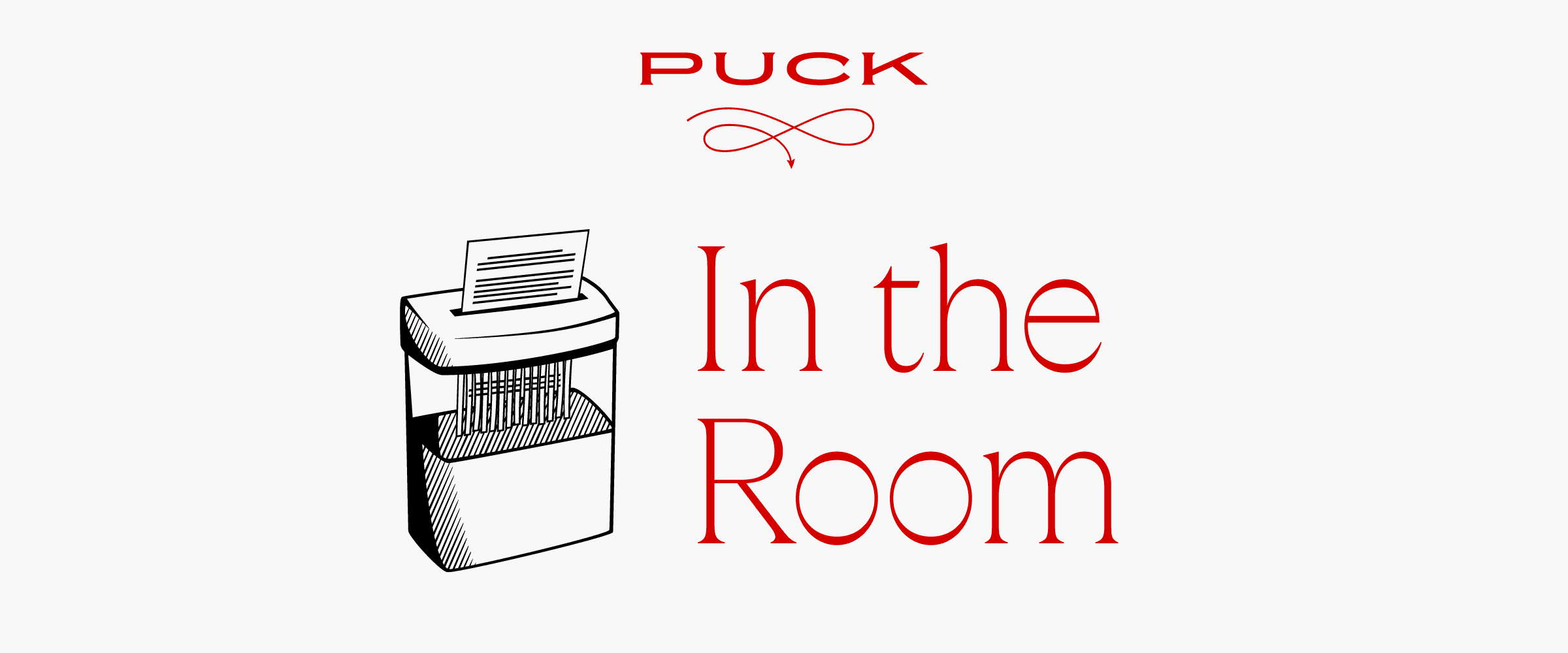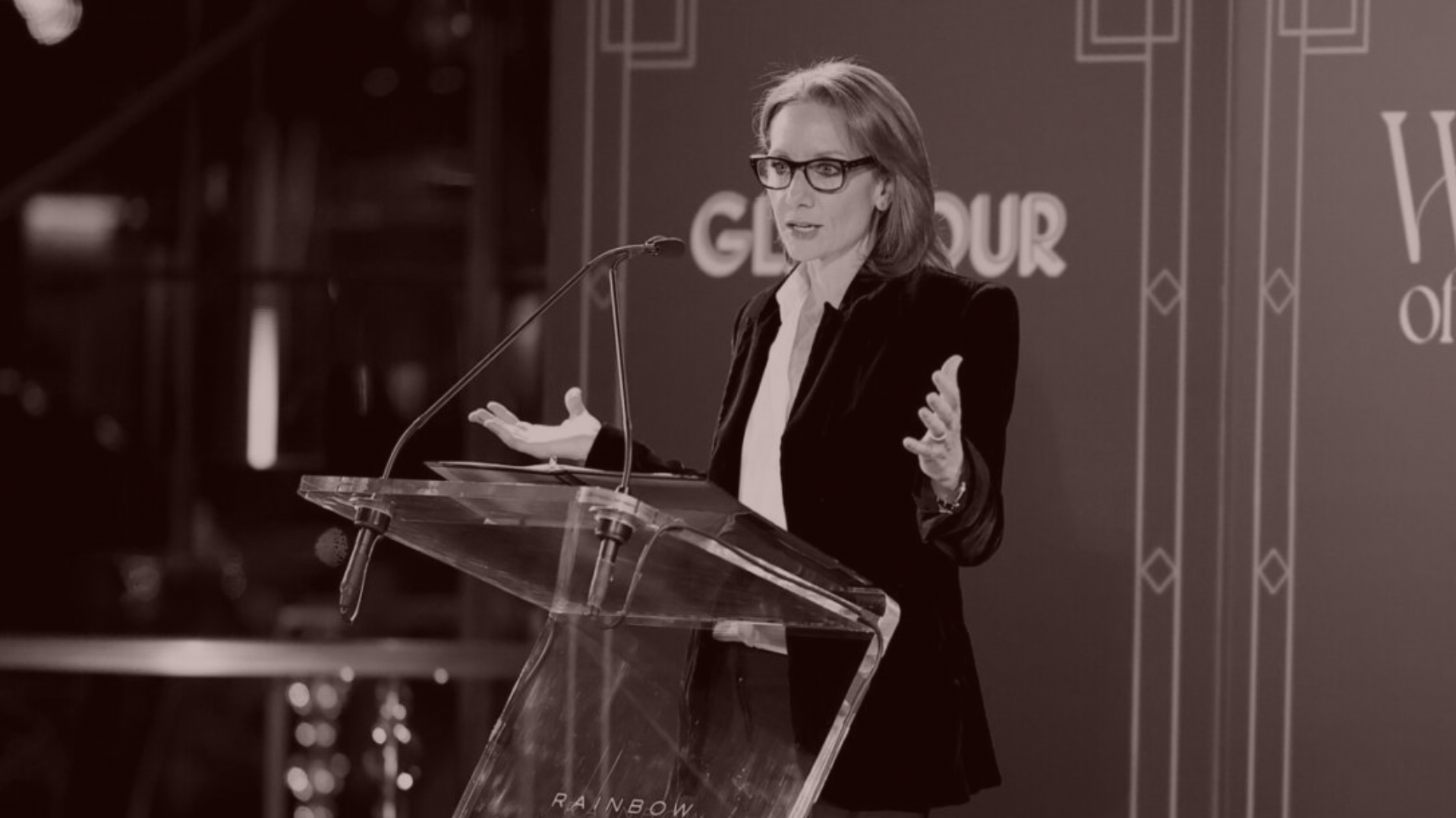 |
|
Greetings from Los Angeles. In tonight’s issue, news and notes on CNN and ABC News’ big Biden–Trump bookings, and a post-game report on what really went down with Pam Drucker Mann’s exit from Condé Nast.
But first…
👀 A Tucker scoop: Tucker Carlson’s longtime executive producer Justin Wells is no longer serving as president of the Tucker Carlson Network, per sources familiar with the matter. Wells had been the E.P. on Tucker’s Fox News primetime show and was ousted along with the host in April of last year, after which he became president of Tucker’s new X-based venture. While Wells’ own X profile still lists him as TCN President, I’m told he is now only working with Tucker as a consultant. I’m also told Tucker recently lost Alex McCaskill, another former Fox News producer who joined TCN after he was fired from Fox for publishing the infamous chyron that labeled President Biden a “wannabe dictator.” (Tucker declined to comment). Meanwhile, in tonight’s edition of The Best and the Brightest, my Puck partner Tina Nguyen notes a precipitous drop off in TCN viewership.
🗞️ The Times vs. the Times: In the latest evidence of the New York Times’ penchant for autosarcophagy, Semafor’s Max Tani reports that a group of reporters have drafted a letter protesting executive editor Joe Kahn’s “unwillingness to tolerate dissent.” In recent interviews, Kahn has tried to telegraph to younger employees the importance of open debate, stressing that the newsroom is “not a safe space”—all polite code for essentially asking them to just do their jobs the way grown ups used to in the old days. The reporters behind the letter argue that he is actually stifling debate with his “broad generalizations” about this new generation of journalists. My only insight into this absurd debate among people with too much time on their hands is this: A decade or so ago, a Times source seeking to explain how the paper managed to succeed even amid all the internal Jill Abramson drama, told me: “The Times is great, despite itself.” Obviously, the statement was evergreen.
🤦♂️ Revenge of Finkelstein: Jimmy Finkelstein, the disgraced founder of the now-defunct Messenger, which Jim VandeHei memorably described to me as “business malpractice and human cruelty at an epic scale,” is reportedly meeting with potential investors to try to launch another company, per The Daily Beast. I have no insight here. I’m merely baffled.
|
 |
| No Country for Old Mann |
| News and notes on the latest storylines coursing through the industry: CNN’s debate coup, NBC’s internal frustrations, and a Condé Nast departure. |
|
|
|
| On Wednesday, CNN C.E.O. Mark Thompson was backstage at Warner Bros. Discovery’s annual upfront presentation, at the Theater at Madison Square Garden, when his political team called to inform him that both president Joe Biden and former president Donald Trump had agreed to the network’s offer to host the first presidential debate. Recognizing the serendipity of the moment, Thompson quickly worked some remarks onto a small note card, took the stage for his portion of the event, and closed by announcing to the room full of advertisers that the historic debate would indeed air on his owned and operated platforms on June 27. “When people have something important to say, they do it on CNN,” Thompson said, adding in one final pitch to the buyers: “I hope you’ll do the same.” ABC News later announced that it will host a second presidential debate, on September 10.
Landing a presidential debate, particularly in this electoral malaise, when the candidates are either hiding from cameras or sitting in courtrooms, is an indisputable victory for CNN and ABC—both of which are in desperate need of momentum, as you all well know. Jeff Zucker, CNN’s former president, told the Times it was “an incredible move by CNN,” and said he was “incredibly proud of them [for pulling] this off.” He also predicted that the debate “will be the most watched event” in the network’s history, emphasizing both the incredible opportunity and responsibility afforded to CNN in this moment. (As I reported earlier today on Twitter, the CNN debate will be moderated by Jake Tapper and Dana Bash. The ABC News debate will be moderated by David Muir and Linsey Davis.)
The networks’ success here is testament to their brand power, which has endured despite years of notoriously inept leadership under Chris Licht and Kim Godwin, respectively. It’s also a reminder of the institutional expertise and operational infrastructure required to secure these bookings. At CNN, Thompson can rightly take credit for this win, but the true fixers here work behind the scenes: Mark Preston, the network’s political events chief who has been at CNN’s Washington bureau for two decades, as well as veteran D.C. leaders like Virginia Moseley and David Chalian. At ABC News, the debate negotiations were spearheaded by Rick Klein, a 17-year veteran of the network.
Of course, both networks have lost a lot of this institutional knowledge and muscle memory in recent years, between the many CNN producers who defected after Zucker’s defenestration and the old ABC News hands who Godwin purged in the latest round of layoffs, or otherwise forced out (see: Jonathan Greenberger). Notably, a day before the debate announcement, CNN’s Washington bureau chief Sam Feist announced that he would leave after three-plus decades to become the C.E.O. of C-SPAN, a strategic exit for a man who had been in the same station for over a decade and seen his former deputy, Moseley, become his boss. Feist was a well-known part of the CNN machinery and the network’s ambassador to official Washington; the June debate will be his last hurrah, and the final badge-and-lanyard on an office wall full of them.
Nevertheless, the debate bookings are a reminder that, despite all the sturm und drang of the last few years, much of the institutional knowledge remains. Moreover, it’s proof that, despite the inexorable decline of the industry, these networks still serve as the only forums in which highly polarized candidates can still agree to come together. Getting Trump on CNN, too, is still a coup in itself.
|
|
|
| On that note, it should be noted that Wednesday was a particularly dark day at NBC News. The morning began with a lengthy New York Times stemwinder highlighting how MSNBC’s success as an unapologetically liberal, pro-Biden, anti-Trump network had compromised NBC News’ reputation for straightforward reporting—or, at least, predictably pissed off a lot of the network’s veterans. Then came the news that NBC had been left out of the debate sweepstakes. “Everyone at NBC was blindsided,” one NBC News journalist told me. Responsibility for the debate effort fell to political S.V.P. Carrie Budoff Brown, who had previously succeeded in landing the network a G.O.P. debate (and subsequently took some heat over her decision to hire former R.N.C. chair Ronna McDaniel as a contributor).
As it turned out, NBC News President Rebecca Blumenstein happened to have scheduled a three-hour “election brainstorming” meeting for Wednesday with the network’s top political producers and correspondents (Kristen Welker, Peter Alexander, Vaughn Hillyard, etcetera), which attendees described as somewhat depressing on the heels of the Times piece and CNN and ABC’s big debate announcements. “Maybe the strategy should be to go out and get us one of these debates,” one NBC News insider told me after the meeting.
And yet that’s not the answer, either, and it actually speaks to the larger problem plaguing cable news—a profound synapse within the minds of many of its leading talent and producers between what used to matter and what moves the needle now. Godwin and Licht may not have been Jack Welch, but they also inherited organizations filled with staffers who were trained in the salt mines of ratings wars, beating the competition at all costs, and landing major prime time bookings. Alas, that’s not the coin of the realm as advertising revenue decreases and migrates, cable customers disappear, and streaming ushers in the need for new formats. (Speaking of which, Thompson also used the upfronts to announce new and returning documentary projects from CNN Films, which had been effectively shuttered under Licht.)
All the major network C-suites are playing the same game—protecting their declining linear businesses as they experiment with new sustainable streaming models, and quietly trimming costs and being practical along the way. Guys like Cesar Conde weren’t put on the executive floor to win Pulitzers, but rather ensure that the portfolio entities survive the coming platform shift as profitably as possible. A Biden-Trump debate will undoubtedly lead the national news cycle and lead to boffo ratings, but it won’t make CNN or ABC’s challenges any easier the day after the candidates leave the stage. Perhaps the folks at NBC News shouldn’t be so pissed after all. In fact, debate or not, their individual brand-focused strategy, coupled with the surprising success of AVOD streamer NBC Now, seems to be working better than expected.
|
|
|
| Late Tuesday morning, Condé Nast C.E.O. Roger Lynch told his board of directors that longtime Chief Revenue Officer and ad sales maven Pam Drucker Mann would be leaving the company. Shortly thereafter, Lynch sent the staff a very courteous note touting Drucker Mann’s contributions and assuring them that, thanks to her leadership, the company’s “commercial operations are better than ever.” Drucker Mann followed up with her own note on “the most difficult decision I’ve ever made,” and cordially thanked Lynch and, of course, Anna Wintour. It was all very civil and professional. On Wednesday, Lynch invited everyone to drinks on the 35th floor, and reminded them that Summer Fridays were just around the corner.
Obviously, this corporate bonhomie belied the true dynamics at play in Drucker Mann’s departure, and the melancholy surrounding the Newhouse family’s once-august publishing giant. Obviously, the company’s commercial operations are decidedly not better than ever. Sure, Lynch consummated the long overdue merger of Condé Nast and Condé Nast International, which probably never should have operated as separate companies, finding countless synergies along the way. But in the five years since Lynch became C.E.O., annual revenue has declined significantly, forcing him to engage in numerous rounds of layoffs and clever financial exercises.
There have been strategic missteps along the way, too. His efforts to grow subscriber revenue across the consumer brands in his portfolio—with the notable exception of The New Yorker—has limited traffic and drained advertising dollars. He has also been forced to abandon an ambitious in-house video studio once considered essential to the long-term business strategy. Meanwhile, most titles in his portfolio are thin shadows of their former selves—the print products are understandably smaller and cheaper while some of the web presences seem at times like upscale BDG properties.
In a statement, a Condé spokesperson countered that, “for each of the last three years the company’s revenue has been flat or grown year over year. This has been widely reported and regularly presented to our teams. New digital subscriptions have doubled over the last year as a result of our paywall strategy.” This Danielle Carrig-approved narrative seems at odds with numerous layoff cycles and the accounts of many current and former executives. But Condé Nast is a unit of Advance, the Newhouse family heirloom, and likely only Steve Newhouse, Gina Sanders, and banker Janine Shelffo, among very few others, know how the accounting is managed given all the real estate holdings, legacy pensions, and so on. Anyway, it’s their money and they’re copacetic.
In retrospect, no one ever said Lynch’s job was going to be easy. He arrived at One World Trade heralded as an unsentimental outsider—a real C.E.O. and scale leader—who could clean up the mess that the creatives and legacy print flat earthers had made for themselves. But guess what: It was harder than anyone thought. In the intervening years, besides enacting multiple rounds of layoffs, he lost three chief financial officers, his head of marketing and now, in Drucker Mann, his revenue chief and linchpin of his advertising business. And then there was the whole union saga.
Naturally, the relationship between Lynch and Drucker Mann was not nearly as harmonious as the memos might suggest. Condé sources say Drucker Mann had spent several years chafing under Lynch’s leadership, and especially his decision to drain the digital audience by implementing an aggressive paywall strategy. Though Drucker Mann can’t entirely extract herself from this inelegant decision. Condé historians will note a Wall Street Journal article from early 2019, that explicitly quotes Drucker Mann endorsing a paywall-or-nothing approach.
Okay, shit happens and things change and the paywall strategy clearly didn’t take broadly, and presumably made the Condé brands a harder sell for advertisers. Nevertheless, for the last three years, I’m told, Drucker Mann had entertained multiple outside job offers but stayed on in the hopes that she would one day be offered Lynch’s job. Was this the quixotic yearning of a Condé lifer who had spent nearly 20 years at the company? Was it the calculation of the cunning executive who recognized that her history at the joint would have made her a clean replacement? Was it possible that she deserved the job on the merits? We’ll never know.
When it became evident that the Condé board had no immediate intention of jettisoning Lynch, despite some directors’ apparent second-guessings, she finally made the decision to leave. She informed Lynch of her decision two weeks ago. People close to Drucker Mann were surprised that the board wasn’t informed earlier and wondered if Lynch thought that she was bluffing, given her long history at the company.
|
| Declaration of the Rights of Mann |
|
| In any event, Drucker Mann’s departure is hardly the sort of news that Condé staff would like to celebrate over drinks on the 35th floor. Her exit is merely yet another source of anxiety around Lynch’s leadership and a reminder of the business’s terminal decline. Indeed, a decade ago, when Condé moved from their legendary offices at 4 Times Square to One World Trade, drinks anywhere in the building would have required some serious cross-elevator-bank navigation. Then, the company occupied more than 20 floors—Anna on the 25th, Graydon on the 41st. Today, it occupies just six, including a commissary that would make any veteran pine for the old Frank Gehry cafeteria uptown.
Real estate metaphors mean something at a place like Condé Nast, draped in history and ample self-regard. Recall, after all, that the company occupied 23 stories of 4 Times Square, a moniker that led the creative services group to call itself, voila, 23 Stories. These days, though, a more apt metaphor hails from Milton’s cubicle in Office Space. The company’s migration from 4 Times Square to One World Trade coincided with an overall corporate humbling, and its decision to continue to migrate its brands around the building and into tighter and tighter spaces is itself analogous to the various ways that management systemically consolidated their photo departments, sales teams, fact-checking and copy editing units (now the Orwellian “content integrity” group, or somesuch) over the years. These were economically necessary decisions, sure, but they were executed in a way that eventually sapped many of these heralded brands of their character.
Drucker Mann came up during the end of the true halcyon days of Condé Nast—the “Mr. Big” era, the “Italian Guys” Da Silvano lunches, Si’s pre-holiday Four Seasons luncheon, and so on. And her rise at the company was, in many ways, the result of her hallmark grit but she also inherited some of the survival skills and general tastes of her forebears. As she ascended the greasy pole, she didn’t insulate herself among the sales wolves like the Richard Beckman types had. Instead, she got what made the place special: the creatives. She partnered with the editors and talent—first and most notably, Adam Rapoport but also Dawn Ostroff, Nick Thompson, Phil Picardi, and later Anna and Remnick. Even though the world and the company had changed considerably during her tenure, she knew that their vision was at the center of the revenue equation. Will it be without her?
|
|
|
|
| FOUR STORIES WE’RE TALKING ABOUT |
 |
|
 |
|
 |
| Putin’s Head Fake |
| On the Kharkiv inflection point and Kremlin musical chairs. |
| JULIA IOFFE |
|
 |
|
|
|

|
 |
|
|
|
Need help? Review our FAQs
page or contact
us for assistance. For brand partnerships, email ads@puck.news.
|
|
You received this email because you signed up to receive emails from Puck, or as part of your Puck account associated with . To stop receiving this newsletter and/or manage all your email preferences, click here.
|
|
Puck is published by Heat Media LLC. 227 W 17th St New York, NY 10011.
|
|
|
|







